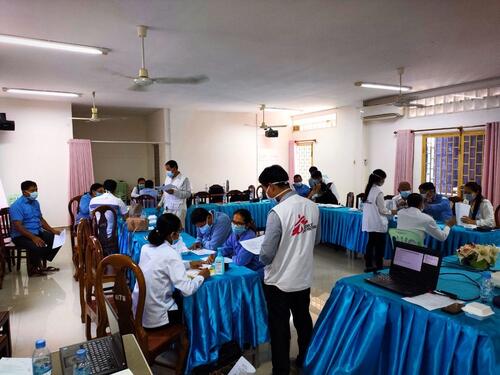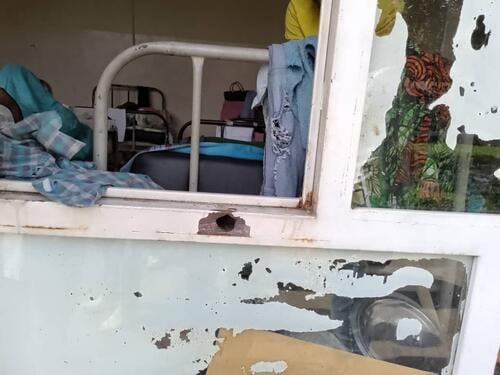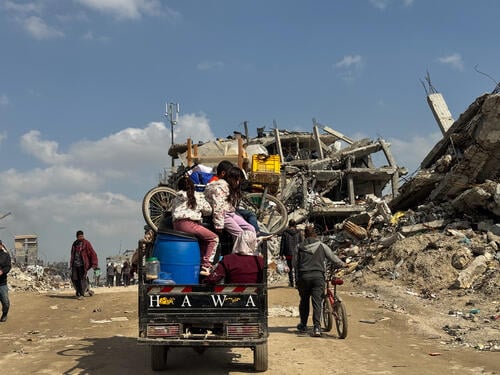So far, 141 cases of COVID-19 have been confirmed in Cambodia. Roughly a quarter of these originated from a group of tourists who were travelling through the country in March when almost all of them got infected. When the first cases of COVID-19 were confirmed in Cambodia in March, the Médecins Sans Frontières (MSF) team had to quickly halt their regular hepatitis C activities to prevent patients from being infected with the virus during visits to the clinic.
MSF was asked by Cambodia’s Communicable Disease Control to contribute to the tracing of contacts of patients testing positive for COVID-19.
“The contact tracing, which the team helped to carry out, seems to have been effective in aggressively breaking transmission chains and limiting the spread of the disease,” says Mickaël le Paih, head of mission in Cambodia.
The team subsequently helped to draft guidelines on COVID-19 infection prevention and control measures and clinical care, in collaboration with the Ministry of Health, as these guidelines did not exist in the country. With the guidelines approved, we have been able to strengthen the know-how about patient triage in six hospitals situated close to the border with Thailand.
These measures ensure that people with symptoms of COVID-19 are immediately separated from other patients. The hospitals needed support in the wake of more than 80,000 Cambodian workers returning from Thailand, where the new coronavirus had hit hard and borders were soon closed.
In only three weeks, over 300 staff members were trained by MSF doctors and nurses. They learned how to follow the new guidelines and how to apply measures around protective equipment for both suspected cases and hospital cares staff in their daily work routine. The training on the latest scientific insights available was provided to ambulance drivers, cleaners, laboratory technicians, nurses and doctors.
In Cambodia:
141
141
80,000
80,
300
3
As in many other countries, MSF in Cambodia faces severe restrictions concerning the importation of the medical equipment needed to treat COVID-19 patients. Innovative ideas had to be found quickly, notably concerning the provision of oxygen through ventilation systems.
With increasing knowledge of COVID-19, the team in Cambodia decided to support intensive care units at the national hospital in Phnom Penh, in case the demand would suddenly increase. The team reached out to a specialist in France who was able to repurpose easy-breathe diving masks as part of oxygen ventilator systems for COVID-19 patients and as personal protective equipment for healthcare staff, as did hospitals in Italy and Spain.
“Despite the low number of COVID-19 cases and no fatalities in Cambodia, building bridges of knowledge between health care workers and partners notably with 3D-printing capacities to adapt the masks remains a critical part of the preparation against possible waves of Sars-CoV-2-transmissions”, says Le Paih.
Meanwhile, our activities on detecting and treating hepatitis C through the Phnom Penh Municipal Referral hospital resumed mid-May and in the primary healthcare clinic in Battambang province on 1 June. The team puts a strong emphasis on the precautionary measures against COVID-19, to fully protect both healthcare staff and patients. This is crucial to ensure that patients continue to come forward and seek health care at dedicated health facilities.






